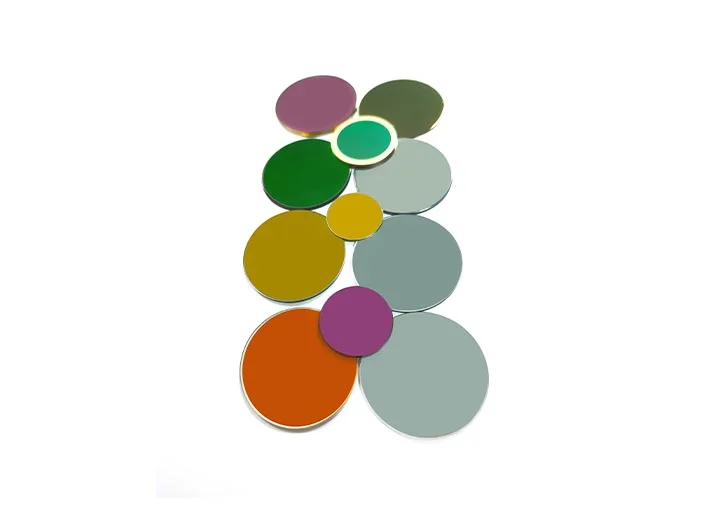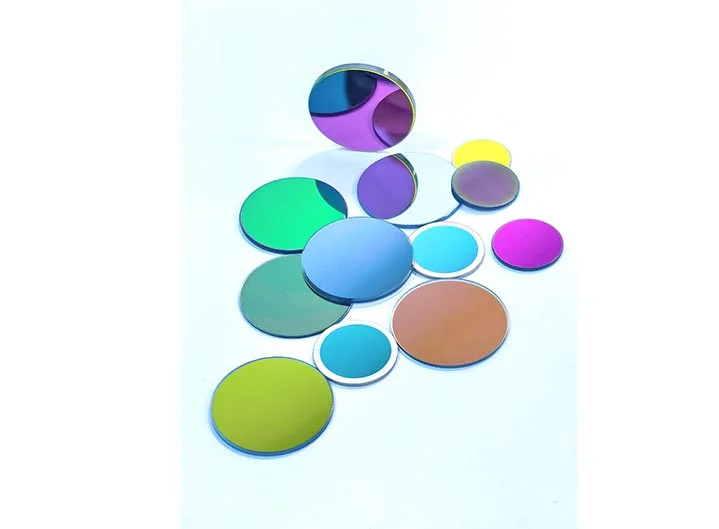Precision spectroscopy is all about measuring light super carefully. It’s a big deal for science, keeping an eye on the environment, and factory jobs. Narrow-band infrared filters, made by Bodian, help make these measurements really spot-on. These filters let just a tiny bit of light through and block everything else. This tight control gives super clear and exact results.
What Are Narrow-Band Infrared Filters?
Narrow-band infrared filters are cool tools that let only a small chunk of light pass. They stop all other light. You use them for stuff like finding gases, checking health, or watching how factories work. By letting just a specific piece of light through, they help you see tiny details that other light might hide.
Why Narrow-Band Filters Matter for Spectral Measurements
When you need dead-on light measurements, narrow-band infrared filters are a huge help. For example, in watching the environment, they help spot gases like CO2, methane, or nitrous oxide. They zoom in on the special light patterns these gases make. Bodian’s narrow-band filters make the data super exact. This is really important for tracking pollution or checking factory emissions.
How Narrow-Band Infrared Filters Make Spectroscopy Better
Narrow-band infrared filters are a big deal for precision spectroscopy. This field has to tell apart super close light wavelengths. Bodian’s filters make spectroscopy tools work way better. They cut out extra light and focus only on the wavelengths you need.
Better Spectral Resolution and Sensitivity
Spectral resolution means telling two close wavelengths apart. Narrow-band filters help by letting just the right light hit the detector. They block other light that could mess things up. This is super helpful for things like testing gases. Small wavelength differences can show big info about gas amounts. Bodian’s narrow-band infrared filters give awesome resolution. They make your results more exact.
Key Features: Bandwidth, Wavelength, and Transmittance
Bodian’s narrow-band infrared filters have three main things that make them great:
- Bandwidth: Bodian’s filters have really tiny bandwidths. This lets them zero in on specific light details with awesome accuracy.
- Wavelength: These filters are built to let light pass at exact wavelengths. They’re perfect for jobs like gas testing or checking materials, where you need to focus on one wavelength.
- Transmittance: Filters need to let enough light through for good measurements. Bodian’s filters are made to let lots of light pass, so the system works great.
Applications of Narrow-Band Infrared Filters in Precision Spectroscopy
Bodian’s narrow-band infrared filters get used in tons of places. They help make super exact measurements by focusing on specific light wavelengths.
Industrial and Environmental Monitoring
For watching the environment, spotting tiny bits of gases like methane or CO2 is really important. It helps control pollution and study the climate. Bodian’s narrow-band filters make gas detection tools work better. They focus on the special light patterns of gases. You’ll find these filters in monitoring stations, factory emission checks, and to follow clean air rules.
Medical and Science Research
Bodian’s filters are used in medical tools, like imaging systems for optical coherence tomography (OCT). In these tools, the filters focus on specific light ranges. This makes pictures clearer and shows body tissues better. In medical research, Bodian’s narrow-band filters help find special signs of health problems. They’re super exact for this kind of work.
Space Exploration and Astronomy
Astronomy gear uses Bodian’s narrow-band infrared filters to look at stars and galaxies. These filters zoom in on very specific light wavelengths. They help astronomers see faint light patterns from far-off objects. Bodian’s filters make spectral analysis really clear. This is key for learning about space and the universe.
Choosing the Right Narrow-Band Infrared Filter
Picking the right narrow-band infrared filter is a big deal for getting good, solid results. Bodian has lots of filters you can tweak for different jobs. This makes sure they work awesome in all kinds of fields.
Things to Think About: Spectral Range, Filter Materials, and Transmission
When you’re picking a narrow-band infrared filter, a few things matter:
- Spectral Range: The filter has to match the light patterns of what you’re testing. Bodian’s filters come in lots of ranges, so you can pick one for exact light focus.
- Filter Materials: The stuff the filter is made of changes how well it works and how long it lasts. Bodian uses really good materials, like special coatings, to make filters strong and trusty.
- Transmission Efficiency: A good filter lets enough light through to the detector. This makes measurements more spot-on. Bodian’s filters are built to let plenty of light pass, even in dark conditions.
Custom Filters for Special Jobs
Bodian can make filters just for what you need. They tweak things like wavelength and bandwidth to fit certain tasks. Custom filters are great for special tools, like super accurate medical devices or high-end science work. Bodian works with folks to make filters that fit just right.
Challenges in Using Narrow-Band Infrared Filters
Narrow-band infrared filters are really cool, but they can be tricky to use. Making them super exact and dealing with tough conditions can be hard.
Making Filters Super Exact
Making narrow-band filters is tough because they need to be crazy precise. Even a super small mistake in thickness can mess up how they work. Bodian makes sure every filter is made with tons of care. They use fancy tools to keep filters the same, even when making a bunch.
Handling Heat and Environment Changes
Narrow-band filters can get fussy with heat. Temperature changes can mess with how the filter’s materials work. Bodian’s filters are built to stay steady in all kinds of conditions. They keep working great, even if temperatures go up or down.
Future Trends in Narrow-Band Infrared Filter Tech
The world of narrow-band infrared filters is always getting better. New ideas in materials and making techniques are making filters even cooler.
New Materials and Coatings
Bodian is leading the pack with new coatings and materials. These make filters tougher and let them focus on even tinier light ranges. This helps meet the need for super exact filters in science and factory work.
Better Ways to Make and Tweak Filters
New ways to make filters, like special layering and cutting tricks, let Bodian build filters for really tough jobs. These advances give folks more choices in how filters work and look.
Conclusion
Narrow-band infrared filters are a huge deal for precision spectroscopy. They give awesome accuracy and clear results in lots of areas. Bodian’s know-how in making top-notch, custom filters helps people in environmental monitoring, medical research, and space exploration. As filter tech keeps improving, Bodian stays focused on coming up with new ways to make super exact measurements.
FAQ
Q1. Why are Bodian’s narrow-band infrared filters great for exact jobs?
A: Bodian’s filters feature extremely narrow bandwidths and high light transmittance. Moreover, they are manufactured using high-quality materials and imported coating equipment. This makes them highly suitable for tasks demanding extremely high clarity and accuracy.
Q2. Can Bodian’s narrow-band infrared filters be made special for certain jobs?
A: Yes, Bodian can make custom filters for specific light ranges and needs. They work for all sorts of industries.
Q3. How do narrow-band infrared filters make spectroscopy tools better?
A: They zoom in on a small chunk of light and block extra stuff. Bodian’s filters cut out unwanted light. This makes measurements more exact, even in tough or dark conditions.



